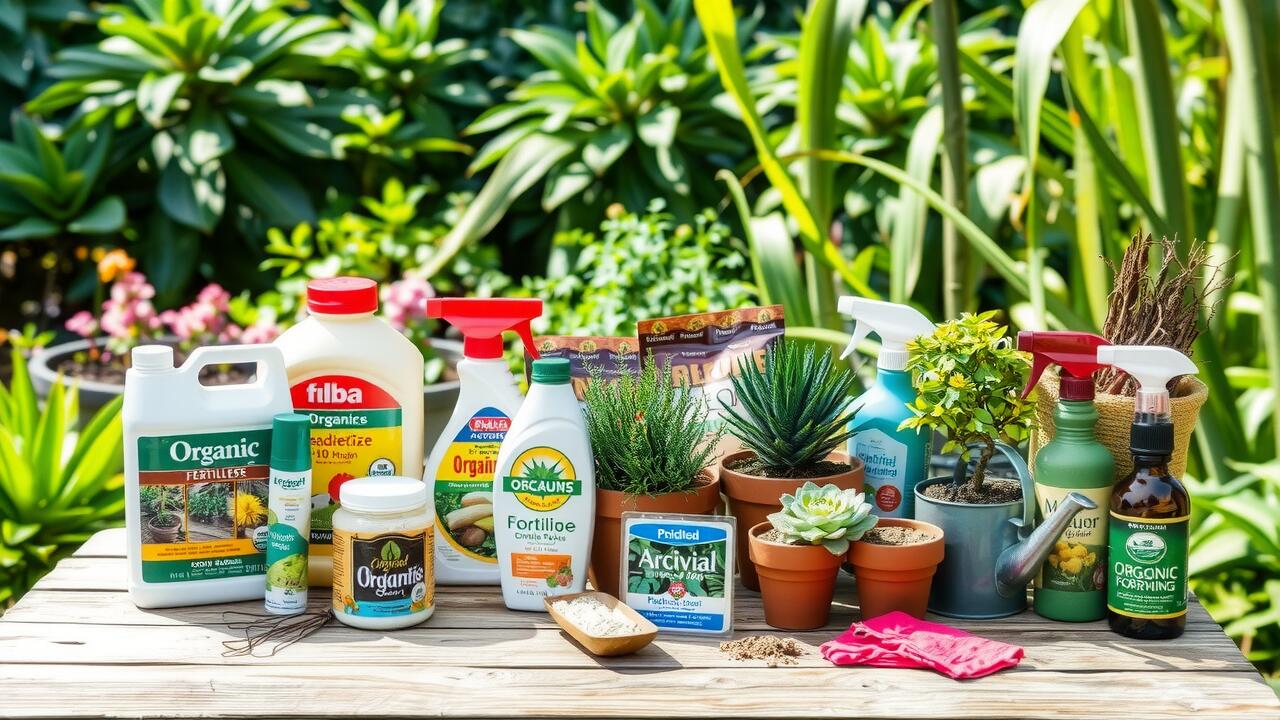Grains
When considering which grains to buy organic, it is essential to prioritize those that are commonly treated with pesticides and herbicides. Wheat, corn, and rice often top the list due to their extensive use in industrial farming practices. These crops frequently absorb chemicals from the soil and environment, which can persist into the final product. Organic alternatives are cultivated without synthetic additives, providing consumers with a safer option for their diets.
Purchasing organic grains not only promotes health but also supports sustainable farming practices. Organic farming methods enhance soil health and reduce environmental impact by avoiding harmful chemicals. When you choose organic grains, you contribute to a system that prioritizes ecological balance and long-term viability over short-term yields. This choice extends beyond personal health, impacting agricultural biodiversity and environmental integrity as well.
Effects of Conventional Farming on Grain Quality
Conventional farming methods often involve the use of synthetic fertilizers and pesticides that can negatively impact grain quality. These chemicals can alter the nutritional profile of grains, leading to lower levels of essential vitamins and minerals. Additionally, residues from these substances may linger on the grain, raising concerns about their long-term effects on human health.
Furthermore, the focus on high-yield production in conventional agriculture can compromise the overall flavor and texture of grains. Farmers are incentivized to prioritize volume over quality, which may result in varieties that lack the robustness found in organic counterparts. This lack of attention to traditional farming practices can diminish the grain’s natural qualities, ultimately affecting consumer choices and health outcomes.
The Role of Organic Ingredients in Processed Foods
Consumers increasingly prefer organic ingredients in their processed foods due to heightened awareness of health and environmental issues. These ingredients often originate from farms that use sustainable practices, such as crop rotation and natural pest control. This approach minimizes the use of synthetic fertilizers and pesticides, leading to products that theoretically are safer and more nutritionally beneficial.
The certification of organic products involves strict guidelines that prohibit the use of artificial additives and preservatives. This means that when purchasing processed foods labeled as organic, consumers can generally trust that they are avoiding potentially harmful chemicals. Moreover, the integrity of organic ingredients often supports local economies by encouraging small-scale farming and reducing the carbon footprint associated with long-distance transportation.
Health Risks Associated with Non-Organic Additives
Processed foods often contain additives and preservatives sourced from conventional farming practices. These substances can introduce a multitude of health risks, ranging from allergic reactions to long-term diseases. Some additives have been linked to hyperactivity and behavioral issues in children. Additionally, certain preservatives have raised concerns regarding their potential role in the development of chronic conditions, including obesity and cardiovascular diseases.
Synthetic chemicals used in non-organic farming may leave residues in processed foods. The effects of continuous exposure to these residues can be detrimental. Hormonal imbalances and increased risks of reproductive issues have been reported in several studies. Choosing organic alternatives can minimize these risks and promote overall well-being. Organic products typically contain fewer synthetic additives, making them a safer choice for consumers striving for a healthier diet.
The Environmental Benefits of Organic Farming
Organic farming practices prioritize sustainability, emphasizing methods that enhance soil health and preserve ecosystems. By minimizing chemical input, organic farms reduce the risks of water contamination and soil degradation. This approach fosters a healthier environment for both wildlife and human populations. Crop rotation and diversification further strengthen soil nutrients and improve pest management, creating a natural balance that benefits agriculture.
Additionally, organic methods support biodiversity by promoting a variety of plant and animal life. Natural habitats are maintained, encouraging pollinators and beneficial insects to thrive. Organic farming also mitigates climate change effects by improving carbon sequestration in the soil. This not only aids in reducing greenhouse gas emissions but also contributes to more resilient agricultural systems capable of adapting to changing environmental conditions.
How Organic Practices Contribute to Biodiversity
Organic farming practices play a crucial role in supporting biodiversity. By avoiding synthetic pesticides and fertilizers, organic farms create healthier ecosystems where a diverse array of plants, insects, and microorganisms can thrive. Crop rotation and polyculture, common methods in organic agriculture, further enhance biodiversity by promoting a variety of species rather than monocultures. This diversity can lead to greater resilience against pests and diseases.
In addition to promoting wildlife habitats, organic practices prioritize soil health, which is essential for sustaining diverse biological communities. Healthy soil supports a rich microbial ecosystem, improving nutrient cycling and water retention. This enhancement of soil quality encourages plant growth and facilitates a balanced ecosystem where various species can coexist and flourish. The overall approach of organic farming not only benefits agricultural yields but also contributes significantly to environmental sustainability.
FAQS
Why should I buy organic grains?
Organic grains are cultivated without synthetic pesticides or fertilizers, which can enhance their nutritional quality and reduce exposure to harmful chemicals.
What are the health risks associated with consuming non-organic processed foods?
Non-organic processed foods may contain synthetic additives and preservatives that can pose health risks, including potential long-term exposure to harmful substances.
How does organic farming benefit the environment?
Organic farming practices promote soil health, reduce pollution, and support biodiversity by avoiding harmful chemicals, thus contributing to a healthier ecosystem.
Which grains are recommended to be bought organic?
It is generally advisable to buy organic versions of grains like wheat, corn, and rice, especially if they are processed, as they are often treated with pesticides and other chemicals.
What role do organic ingredients play in processed foods?
Organic ingredients in processed foods help to minimize exposure to harmful chemicals and promote better health outcomes, as they are grown without synthetic pesticides and fertilizers.
